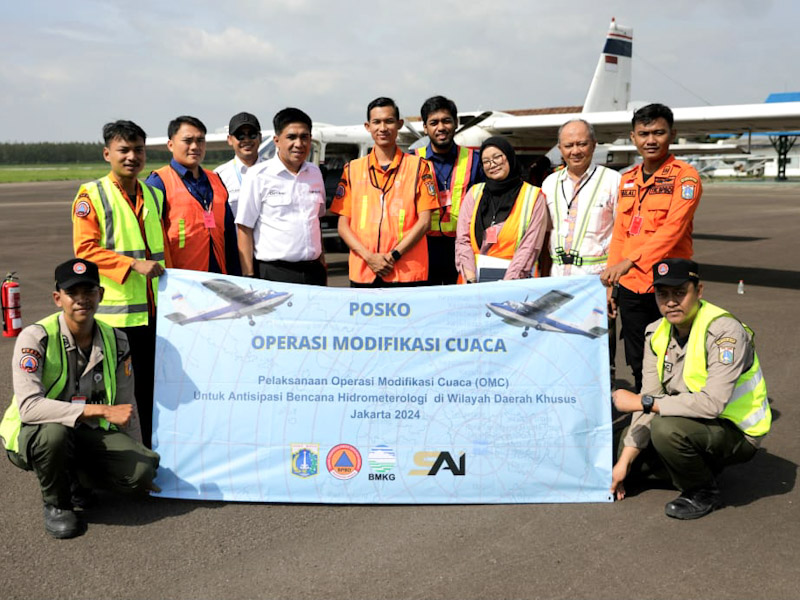Second OMC Reduces Rain Intensity by 69 Percent
Reported by Budhi Firmansyah Surapati | Translated by Nugroho Adibrata
The Jakarta Provincial Government held the second phase of weather modification operations (OMC) from December 13 to 16, 2024. As a result, the intensity of rainfall in Jakarta decreased by 31 percent from the actual prediction of the Global Satellite Mapping of Precipitation (Gsmap) and 69 percent from the actual prediction of the rainfall gauge.
In Jakarta, the data shows that there is no rainfall above 100 millimeters
Jakarta BPBD Control and Operation Sub-Group Chairman, Muhammad Thoufiq Hidayatuloh said the party held 10 mission flight sorties during the OMC. With a flight duration of 17 hours 38 minutes and using up 8,000 kilograms of NaCl seeding material.
"Technically, OMC is held using the method of sowing salt or seeding it into the clouds," he expressed, Tuesday (12/17).
Weather Modification Operation Effectively Reduces Rainfall in JakartaHe added seeding was held at altitudes varying between 8,000 to 11,000 feet. It targeted areas with rainfall intensity ranging from 30 to 110 millimeters/day.
Based on actual rainfall data from the GSMaP satellite in Jakarta from December 13-16, it ranges from 0-80 millimeters/day. Despite it rains in Jakarta, its intensity does not exceed the predicted value used as a reference for the implementation of OMC activities, which is below 100 millimeters.
Then based on actual rainfall data, the rain gauge recorded maximum rainfall on December 13 is 1.2 millimeters, 12.6 millimeters on December 14, and 57 millimeters on December 15. While on December 16, the maximum rainfall is recorded at 19 millimeters.
"In Jakarta, the data shows that there is no rainfall above 100 millimeters and it has the potential to cause a disaster," he asserted.
Jakarta BPBD Secretary, Marulirua Sijabat uttered the OMC implemented by Jakarta Government is a follow-up to BMKG forecast regarding the potential for rain during that period. During the OMC, his party also collaborated with the ranks of BMKG and Basarnas.
"Generally, OMC has succeeded in reducing the intensity of rain so that there is no rain according to BMKG forecasts which could potentially trigger a disaster," he closed.



